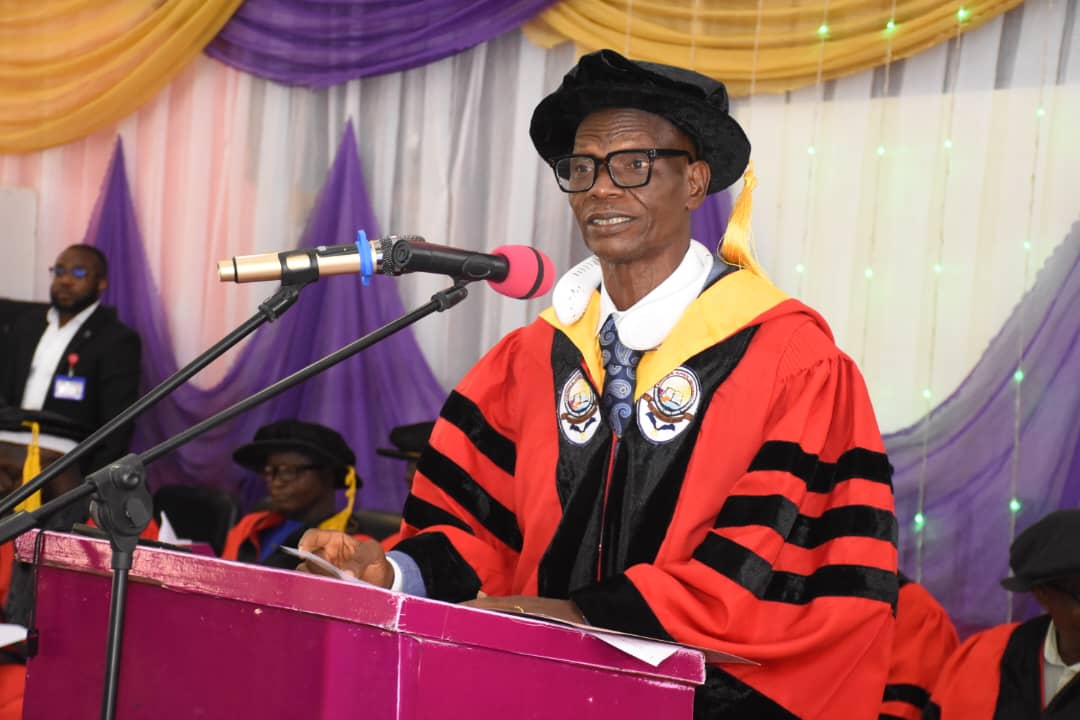Prof. Festus Oluwole Alabi of the Department of Educational Management, Adekunle Ajasin University, Akungba Akoko, has called for a reconceptualization of the roles individuals and institutions play within the school system, stressing the need for green leadership that would counter ills and usher in a sustainable and morally upright education sector.
Prof. Alabi made the call on Tuesday, April 15, 2025, while delivering the 37th Inaugural Lecture of the University, titled, The Man and the Plant in the School System: Predator or Green Influencer?
He said, The task of everyone in the school system is to ensure the realization of the purpose of the school by jettisoning predatory tendencies and embrace Green-influencer dispositions. This is because the education system is the gateway to the kingdom on Earth and all hands must be on deck to support the Green influencers to make it work.
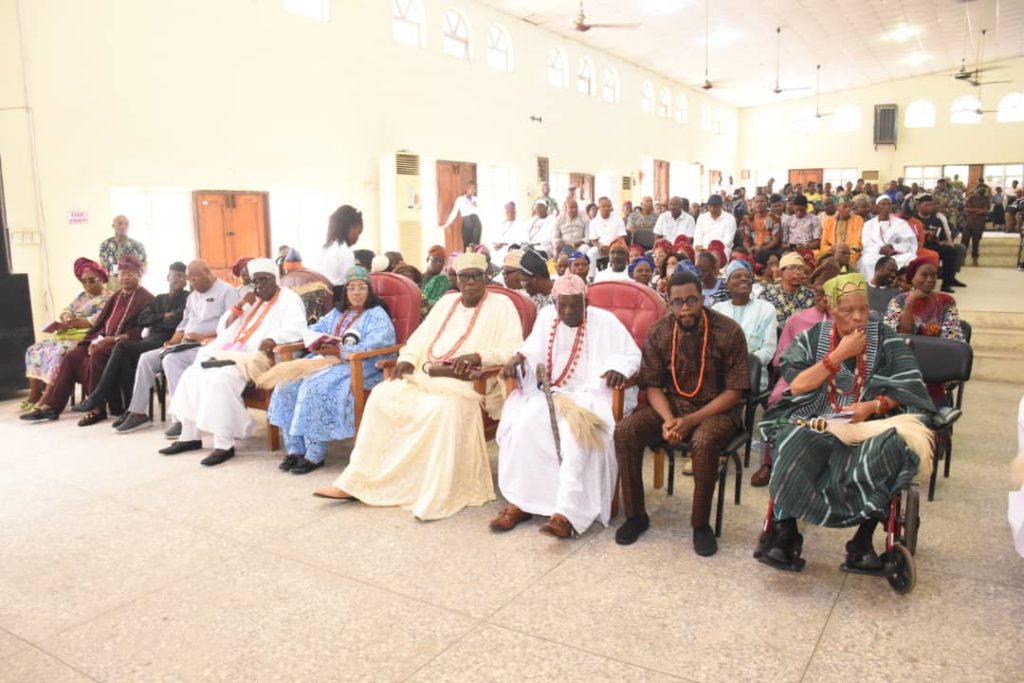
He emphasised, The immutable truth from creation is that man and plants are the livewire of the Earth. The school system is not just a learning environment, but the cradle of civilization, culture, and sustainability.
The Inaugural Lecturer urged a return to integrity, to green influence, and to a deep, spiritual understanding of the education sector as a tool for national rebirth.
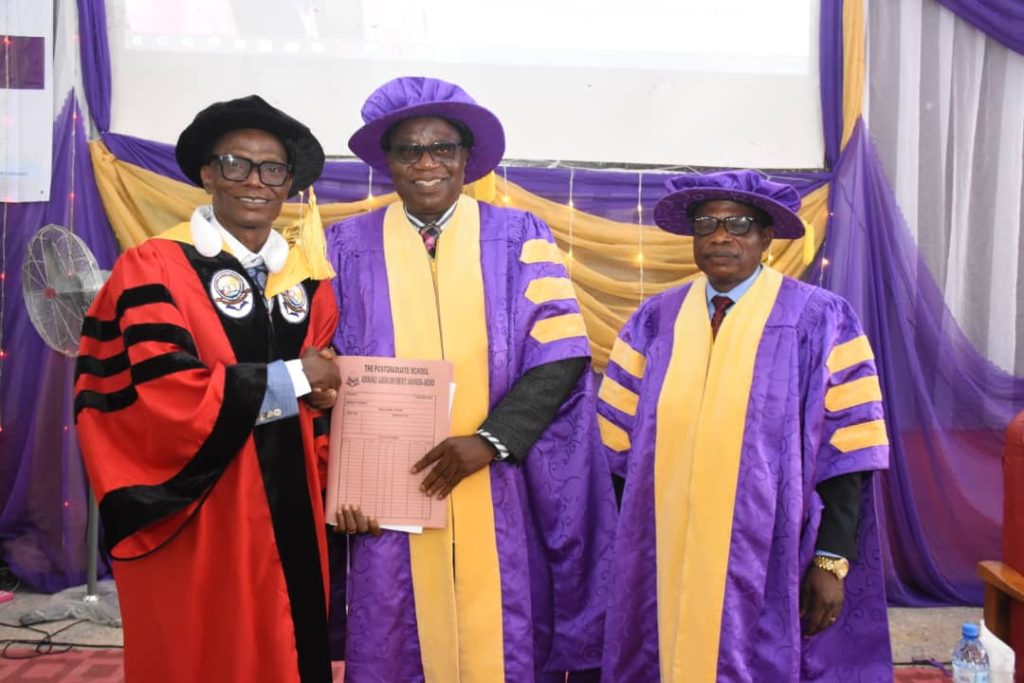
According to him, The school should be seen by every man as a microcosm of the earth in God’s creative art, and thus, should be guided and protected to avoid entropy.
Prof. Alabi described Green Influencers as individuals and institutions committed to environmental sustainability, ethical leadership, and value-driven management of educational systems.
He said A Green Influencer is anyone who sees the planet Earth as a sanctuary, a Garden of Eden to be preserved, developed, and sustained, listing their traits to include empathy, competence, love for innovation, and high devotion to both human and plant development in the educational system.
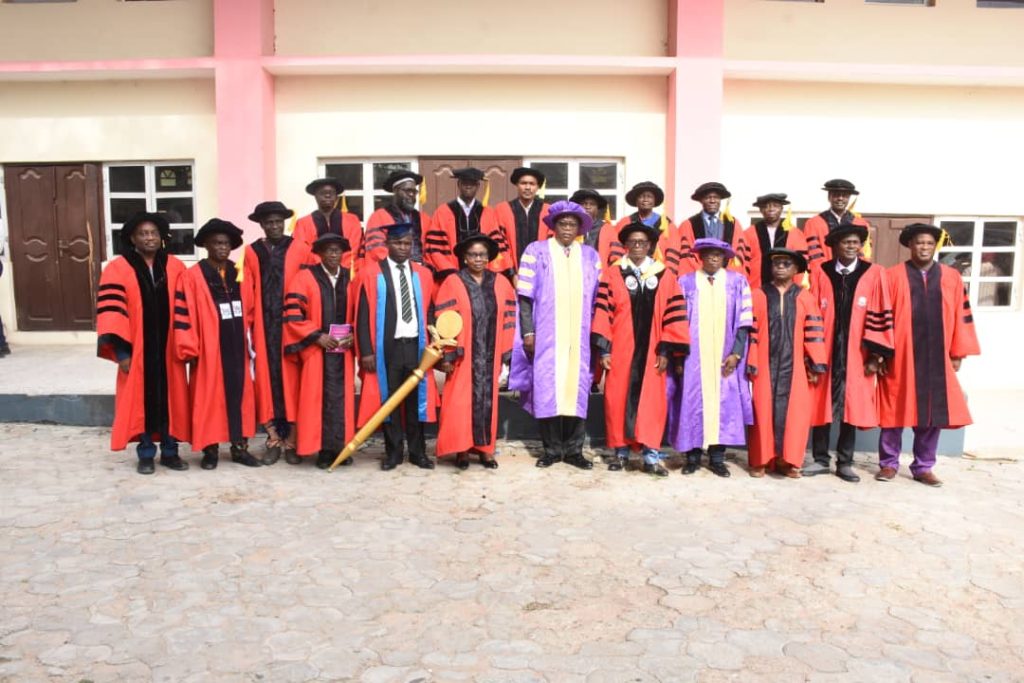
On the flip side, Prof. Alabi noted the predators as those (corrupt officials, abusive teachers, manipulative students, and institutions that mislead or financially exploit learners) who exploit the vulnerabilities within the school system for personal gain.
He lamented numerous scenarios depicting predatory behaviour oncluding lecturers demanding sexual or financial favours, administrators falsifying records, or institutions charging illegal fees and engaging in accreditation fraud.
He said, The education industry in Nigeria has been plagued by systemic dysfunctions largely due to selfishness, tribalism, and underfunding. While the government starves institutions of resources, it ironically institutes bodies like NUC and WAEC to accredit or disaccredit programmes based on standards it has failed to support.
He recommended that people in political leadership position should be those certified and knowledgeable in the importance of flora and fauna in the maintenance of homeostasis in the ecosystem, while school leaders from elementary schools to tertiary institutions should have a minimum qualification of Diploma in Educational Management in order to equip them with the competence required for effective and efficient management.
He added that government should refrain from influencing the school mapping as it is essentially a techno-professionally oriented exercise, while ensuring adequate provision of funds in the national budget for the school’s overall development, and people in position of authority, planning and decision-making on educational matters should be rational, dispassionate, humane, patriotic and be guided by the fear of God in the discharge of the statutory duty of resource allocation on the basis of equity, fair play and justice for the overall good of all.
He further urged government to formulate inbuilt corrective mechanism that focuses on accountability to put the school management, staff and students on their toes and accountable to the use, misuse or abuse of the school individuals and plants, while calling on the ministry of Education officials to be more alive to their responsibility of school supervision and quality assurance.
Prof. Alabi advised school management to ensure that different types of maintenance regular maintenance, preventive maintenance, upgraded maintenance, predictive maintenance and emergency maintenance are promptly employed as the need arises in the school community participation and collaboration in order to generate more funds and resources (human and materials) for school maintenance, progress and continuity.
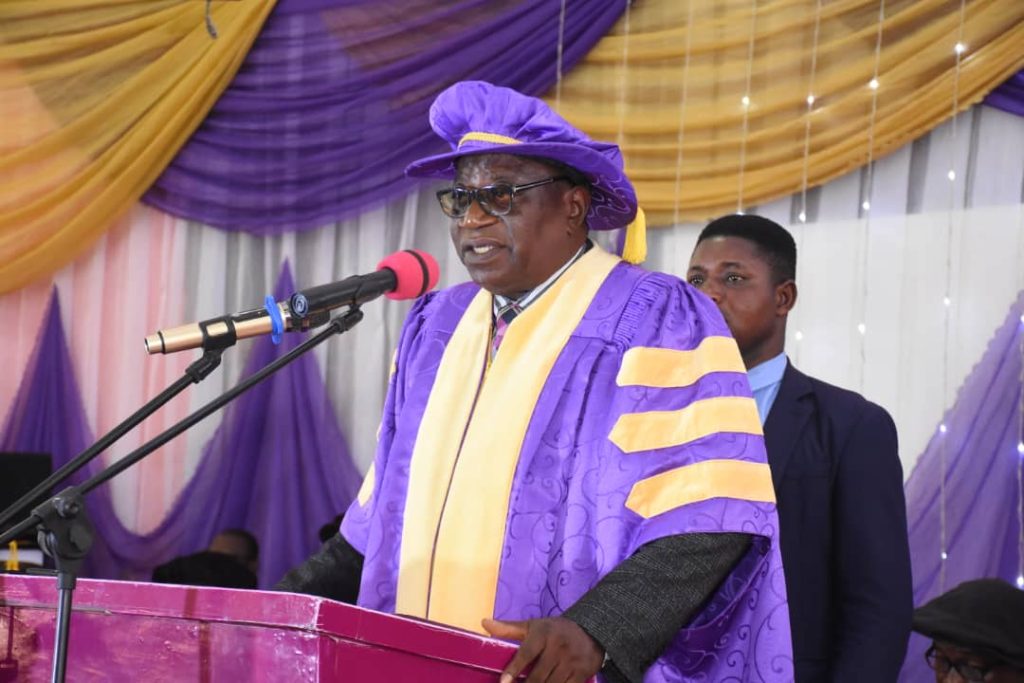
In his remark, the Vice Chancellor of the University, Prof. Olugbenga Ige, thanked the Inaugural Lecturer for his tireless commitment to academic excellence and outstanding contributions to educational development, and for the exemplary leadership he has continued to offer within and outside the University.

